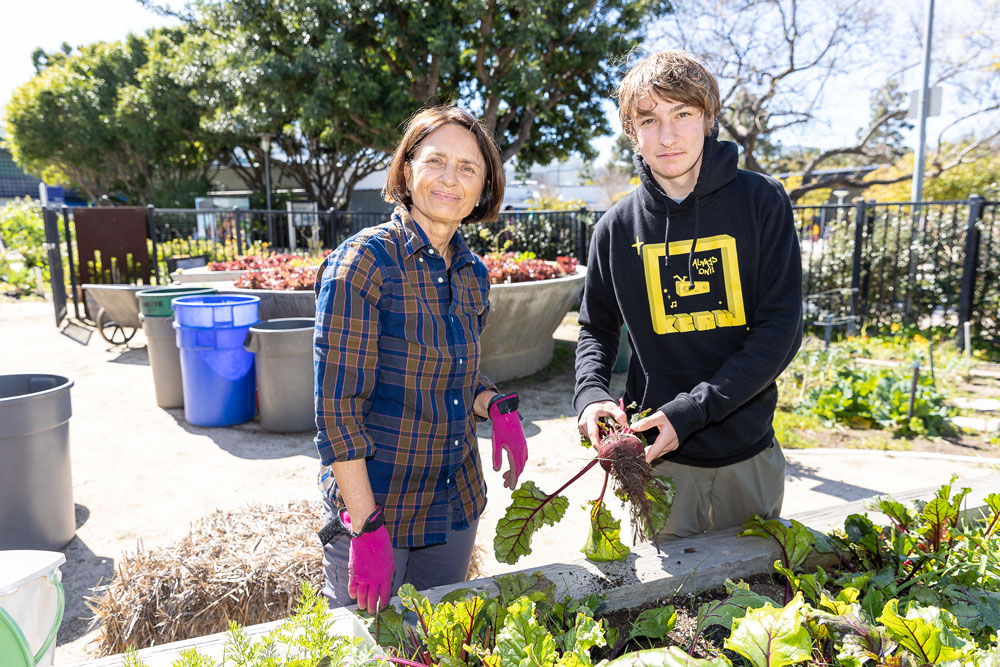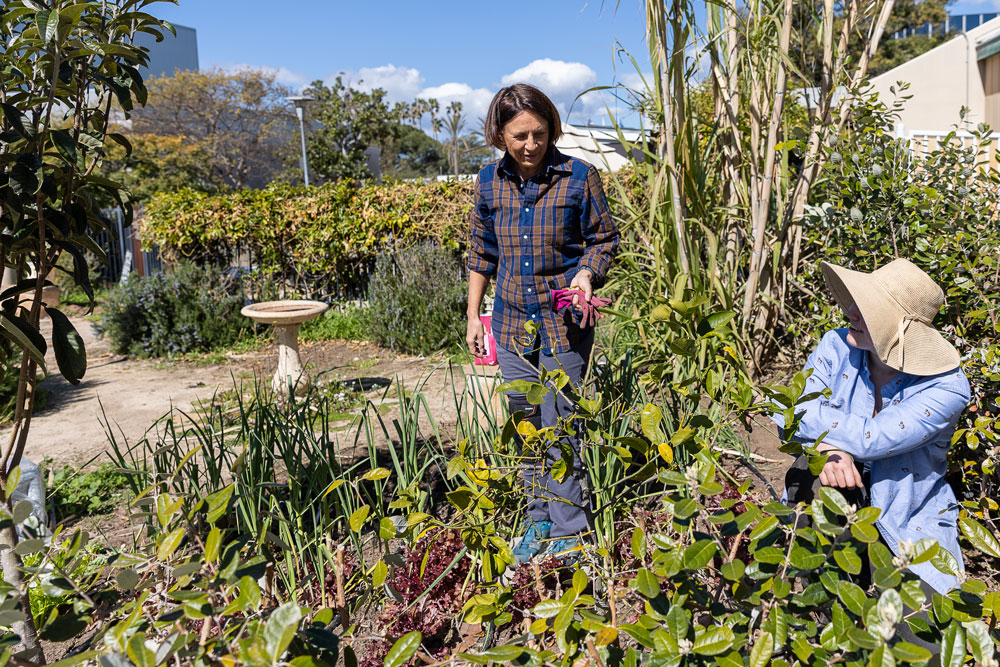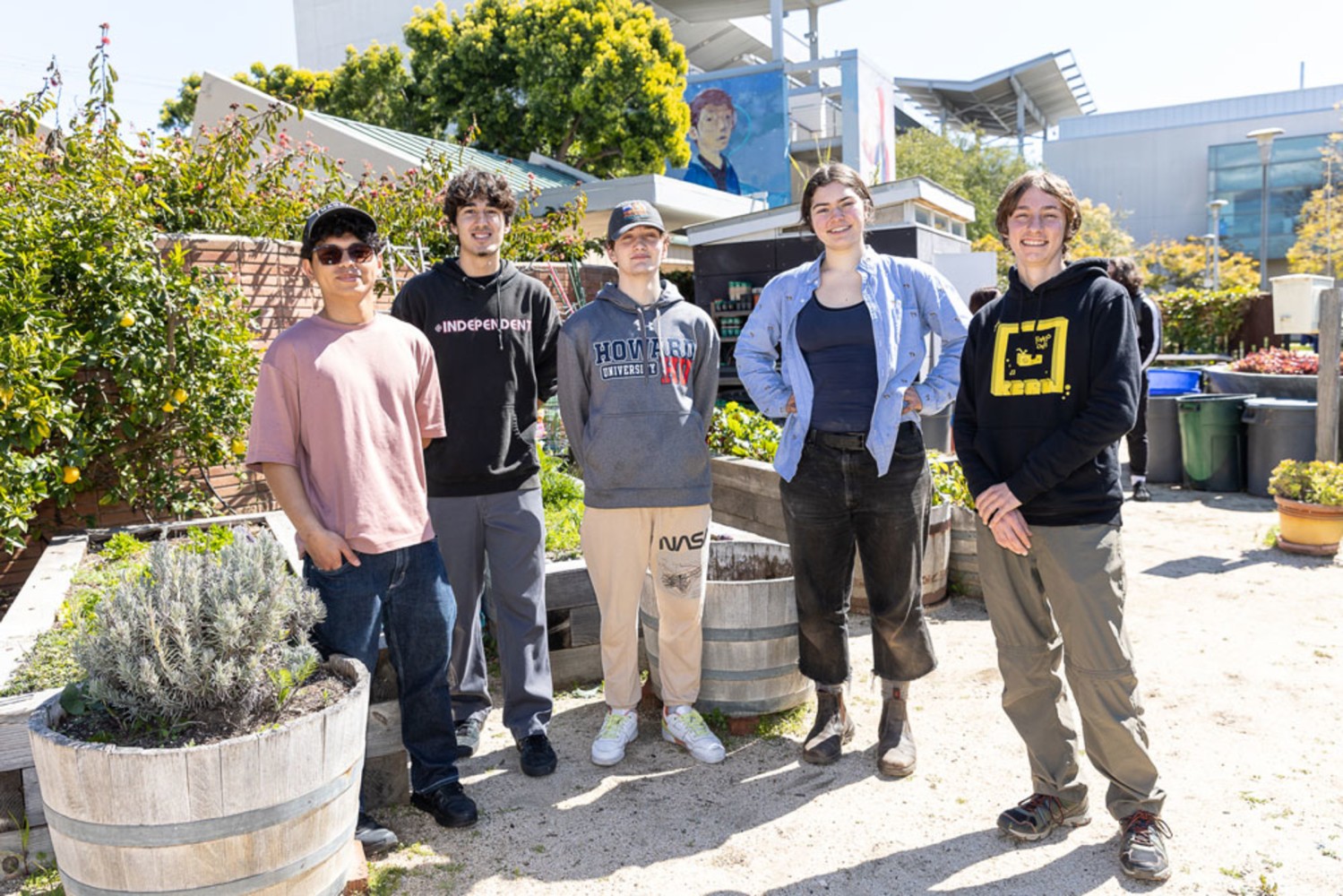After A Pandemic-Influenced Hiatus, The Garden Is Open Again
After a pandemic-induced hiatus, Santa Monica College’s Organic Learning Garden—a 1,200-square-foot garden in the heart of the college’s main campus—is open, once again, to students (and employees) who want to learn how to grow their own food. Master gardener Daniela Roveda says the garden is “like a magnet.” She opens the gate, and people start to wander in, looking at the 14 plots of vegetables, fruits, and herbs. Some become so enchanted that they offer to volunteer as gardeners themselves.
“We have several raised beds in addition to planting straight into the ground,” says Roveda,
who also serves as an advisor to the SMC student-run Club Grow. With the club’s members, she manages the garden and teaches students how to grow their own food without artificial fertilizers or pesticides.
Opened in 2011, the Organic Learning Garden is a tangible example of SMC’s commitment to
sustainability, enabling students to embrace eco-friendly growing techniques that yield fresh,
healthy foods while also nourishing the earth. Groups of students can apply to maintain one of
the 14 plots and Club Grow meet weekly to tend to the overall garden, in addition to growing
what they want in their designated plot.
Harvesting Together

The Organic Learning Garden is also open to SMC employees, something Roveda calls beautiful, because “the garden has become a meeting point where people can feel part of a community connected by the same interests and passions.” She points out that many miss out on gardening because they live in apartments where they can’t have one. “Many are just happy to put their hands in the soil. Others want to learn so they can start their own garden, so they come in with a million questions.”
She also holds workshops on topics such as seasonality, soil health, caring for fruit trees,
pruning techniques, grafting and the benefits of organic agriculture. The volunteers also share their produce with students facing food insecurity through donations to the Bodega, SMC’s first on-ground free food pantry.
Greener Pastures
Roveda’s love for gardening can be traced back to her childhood in Milan, Italy. “I went to a
school that incorporated the garden and nature as a learning tool for children, so we had a little
farm on site,” she says. She studied economics and became a financial journalist, but that
interest never left her. Then, about a decade ago, she left journalism to earn a certification as a
master gardener from the University of California Agriculture and Natural Resources
Department.
Club Grow President Ryan Brode is glad she did. An avid gardener since boyhood, he joined
Club Grow immediately upon coming to SMC to study environmental science, and enjoys
recruiting budding gardeners to the cause.
“I love what gardening does to help people and give back to the community,” Brode says,
referring to the donations made to the Bodega, as well as to what gardening teaches people
about environmentalism. “It’s also about the joy of watching things grow and the satisfaction of
being able to eat food you’ve grown yourself.”
An avid cook, Brode says his favorite thing to grow is probably tomatoes. “They are very
universal, and you can make sauces, soups, sandwiches—a lot of different things!” he notes.
He also enjoys sharing his growing knowledge, much of which he picked up from Roveda. “It’s exciting
working with her,” he says, “because I’m always learning new things.” Before the
Organic Learning Garden at SMC, a lot of his gardening know-how came from “trial and error.”
Planting Seeds

Daniela Roveda is passionate about teaching SMC students about the joys and benefits of
cultivating your own food. “I think a lot of people tend not to pick vegetables as their first
choice when they dine out or go grocery shopping,” she says. “But when you have this big head
of lettuce that you planted as a little seed, there’s a feeling of ownership that changes your
relationship with food.”
Instilling this appreciation is especially gratifying, according to Daniela. “I see those who might
otherwise never touch broccoli, kale or a raw carrot that when they grow and pick it, they all
eat their vegetables,” she says. “It’s like a miracle.”
Brode, who plans to transfer to continue his studies on his way to a career in environmental
engineering or development, points out an additional benefit: “We make friends and have a
good time,” he says. “Because who doesn’t love a garden party?”
To learn more about SMC’s Organic Learning Garden and all things sustainability-related at theCollege, visit smc.edu/sustainability.













